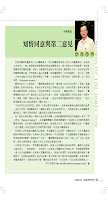2009年6月24日 星期三
2009年6月22日 星期一
2009年6月19日 星期五
*安寧療護的真諦


Dame Cicely Saunders founded St Christopher’s (1967)as the first hospice to link expert pain and symptom control, compassionate care, education and clinical research. St Christopher’s has been a pioneer in the field of palliative medicine, which is now established worldwide.
In founding St Christopher's in 1967, Dame Cicely Saunders made an extraordinary contribution to alleviating human suffering. The hospice has been a centre of innovation and insight ever since.
She conveyed a message to those she cared for:
"You matter because you are you, and you matter to the end of your life.
We will do all we can, not only to help you die peacefully, but also to live until you die."(你是重要的,因為你是你。即使活到最後一刻,你仍然是那麼的重要。我們會盡一切的努力,幫助你安然逝去;但也會盡一切的努力,讓你活到最後一刻!) (http://www.stchristophers.org.uk/)
在病人臨終時,生活的品質可能優於生命的延長,醫師在此時,如能尊重病人意願,提供安寧緩和醫療的照顧,並在臨終時協助病人有尊嚴的死(die in dignity)或安詳的往生(peaceful death),將是莫大的功德。大孝與大愛應是陪伴臨終家屬,協助其坦然接受疾病,安度餘生,安詳捨報往生。病人的死亡,並非醫療的失敗,未能協助病人安詳往生,才是醫療的失敗。[陳榮基:慈濟醫學雜誌,2006年,第18卷155-157頁.]
In one's final moments, quality of life may be more important than the mere prolongation of existence. Physicians who respect patients' wishes and provide hospice palliative care, can foster a peaceful and dignified departure from life, although the benefits that this provides may not be easily determined empirically. Filial duty and love should find its expression in being with the family member at the end of his or her life, and in encouraging acceptance of disease, quiet life in his last days and peaceful passing. Where it is unavoidable, the death of a patient is not a medical failure. Not being able to facilitate a peaceful and dignified demise is, however. (Rong-Chi Chen: Tzu Chi Med J 2006; 18:155-157)
2009年6月16日 星期二
2009年6月12日 星期五
*金山醫院法蓮病房將於6月21日舉行啟用典禮


由台大醫院支援的北海岸金山醫院的安寧緩和醫療病房--法蓮病房,將於6月21日上午舉行啟用典禮。法蓮病房由法鼓山捐贈佛堂,蓮花基金會捐贈恆溫洗澡機。除了照顧北海岸居民,也將結合法鼓山道場及蓮花基金會、臨床佛學研究學會的力量,作為佛教臨床宗教師的培訓場所之一。
2009年6月9日 星期二
*失智症十大警訊


當我們的親朋好友或長輩,不幸罹患失智症時,請用愛心來包容他,協助他,他是否記得我們已經不重要,重要的是我們永遠記得他,而且珍惜與他相處的每一時刻。[蕃薯毋驚落土爛,代代相傳代代湠!]我們要緬懷的是他曾經擁有的過去,要堅強面對的是對當下的他妥善照顧,要承諾的是給他給他一個舒適及有尊嚴的晚年。
2009年6月8日 星期一
2009年6月6日 星期六
[山] 的啟示
(恩師OLDWISEMAN100傳來一則箴言,特轉錄分享)
[山] 的啟示
OLDWISEMAN 100
1. 富貴之家,要學 [寬大]
2. 聰明的人,要學 [厚道]
3. 事忙 [不茫],人繁不 [煩]
4. 無事 [澄然],有事 [斷然]
5. 得意 [淡然],失意 [泰然]
6. 過頭的飯可以吃,[過頭的話] 不可以說
7. 你不能控制 [別人],但可以 [掌握] 自己
8. 你不能樣樣 [順利],但可以事事 [盡力]
9. 你不能改變 [容貌],但可以展現 [笑容]
10. 少年要有 [禮讚] 生命的 [感恩]
11. 青年要有 [自覺] 信念的 [價值]
12. 壯年要有 [活水] 源頭的 [精進]
13. 老年要有 [歡喜] 生活的 [平靜]
14. 知足是 [天然] 的財富
15. 奢侈是 [人為] 的貧窮
16. [今晚] 脫了鞋上床,不知 [明早] 穿不穿?
17. 人生不 [滿百],常懷 [千歲憂]
18. 青山原 [不老],為雪白頭
19. 綠水本 [無愁],因風皺面
20. 人能 [弘道],非道 [弘人]
21. 言可招 [禍],行可招 [辱]
22. 有 [自我] 的個性,也要有 [隨眾] 的個性
23. 相形,不如 [論心],論心,不如 [擇德]
24. 要 [爭氣],不要 [生氣]
25. 有心外的 [知識],也要有心內的 [體驗]
26. 心中有事,[世間小],心中無事,[一床寬]
27. 雖是有形 [自由身],莫坐無形 [心中牢]


























![2015周大觀基金會熱愛生命獎章<[請點下圖連署支持全責護理]>](https://blogger.googleusercontent.com/img/b/R29vZ2xl/AVvXsEhR0ro5qBQz4S7V5tGJ0qFz5VYN2TjWxLCax6qeuGNaJuYG5vuSAkdH_iKshGXJd07qrNYdWUiXErIu_IB-t0CGwKR2MWtTA6MXkyjrlDi9Y6Gj1vqJ_eA0O1ekNHY7QtQN7m38X7DEyZFV/s1600-r/Fcover_final.jpg)














